Translated by Yusuf Laher
[1 – 25] Part One
[26 – 45] Part Two
[46] Constancy in dhikr and its benefits
Be constant in dhikr even if the heart and mind is not present and there is no enjoyment. In due course the dhikr will develop into such a habit, there will be no repose without it. For example, initially when a person smokes a huqqa (smoking pipe), he experiences giddiness, nausea and vomiting. By regularly smoking, this condition changes and now he cannot do without it, so much so that even if he doesn’t have food, he must have a few drags on the huqqa.
On another occasion Hadrat said (on the same subject):
Although not felt, benefit (from dhikr) is achieved from the very beginning. A child grows daily, but it can never be determined how much the child has grown for a particular day. One can gauge the growth of the child only after a considerable amount of time has passed by comparing his present condition to the previous. A major difference will be noted. In the same way, dhikr, in the initial stages seems to be devoid of benefit, but actually he is receiving benefit all the time (without realizing it).
Once Hadrat said:
Drops of water continuously fall on a stone resulting in eventually a hole being formed. Can it be said that the last drop formed the hole on the stone? Never! The first drop was just as effective as the last drop in forming the hole. Never consider the first drop to be useless. In the same way, the first day’s dhikr that one considered to be without benefit is undoubtedly beneficial! The special (spiritual) condition that has been achieved is the result of the first dhikr just as the latter dhikrs.
[47] Concentration in salat
A cursory concentration suffices in salat, dhikr, etc. Do not exert yourself otherwise the heart and mind will be harmed. Exertion in concentration also causes tiredness and distress, resulting in the disruption of benefit. Proficiency in concentration will gradually, step by step be achieved through cursory concentration.
Also, do not exert yourself to preserve a certain [spiritual] condition, nor hanker after such a condition. Extremism is harmful. Do what you are required to do. Ability and conditions will form on its own. Don’t agitate yourself nor concern yourself with results and conditions. The main objective is to keep oneself engaged and occupied.
[48] Beneficial dhikr
One or two types of dhikr are more beneficial than adopting many types (at the same time). In adopting many types of dhikr the person’s mind is not focused, thus the benefits of the dhikrs are not fully effective and long lasting. Full benefit is achieved in a short space of time by adhering to one or two types of dhikr.
[49] Doubts in aqa’id
A person said he had certain misgivings and doubts in certain aqa’id (beliefs). Hadrat replied that if it is so, then it is absolutely necessary the doubts be cleared as soon as possible, otherwise no ‘amal (deed) would be beneficial. All your deeds will be wasted. First it has to be ascertained as to whether you truly have doubts or just thoughts. Doubt is one thing and stray thoughts another, and both have separate laws. To doubt the necessary beliefs results in damage and harm to iman (faith). On the other hand, thoughts are not even a sin, for there will be no questioning regarding it.
Thereafter Hadrat inquired from him as to whether he is troubled by those thoughts and do they cause him anxiety or not. Also whether he had considered preventative measures or not. He replied that they cause him great anxiety and uneasiness. Hadrat said: Then these are just stray thoughts and not doubts. The differentiating factors are that thoughts have anxiety attached to them, the heart is troubled, and the person abhors such thoughts and considers preventative measures. But when one experiences doubts, all these factors are absent. The heart is completely at ease. Thus you will not see a kafir (non-Muslim) in such anxiety. You only have suspicions. Do not become troubled by them, for Shari’a has granted us immunity regarding them. When there will be no questioning regarding them, then to be troubled by them is a complete waste of time. It is acknowledged that they are troublesome but they will not be if you ignore them. For example, if one is feeling sleepy, let it come and don’t fight it. Do not make an intention of ignoring the thoughts. The intention of ignoring them (or fighting them) is actually getting involved in them. The more you try to fight them the more they will attack you. Do not become perturbed even if you are not free from them your entire life because they are not harmful to you in any way.
[50] The faults of others
To be free from looking at the faults of others is a great ni‘ma (bounty).
[51] Attaching hope on another person
Hadrat Mawlana Gangohi (may Allah have mercy on him) said: “Do not attach any kind of hope and expectation with anyone, even with me.” Do not hope for anything from anyone. This is the essence of ones din and dunya. If this is a person’s condition, he will be free from anxiety and grief.
[52] Shun that which is non-beneficial
Shun that which has no benefit in it (worldly or dini). A person who does this will enjoy his life and will achieve the goodness of both worlds. Plenty time is wasted in non-beneficial acts.
[53] Sleep when feeling sleepy
If one becomes sleepy while reading (studying, praying, etc.) then simply place your head on a pillow and sleep! Once you feel fresh, begin studying again. If one keeps on fighting sleep the mind will be harmed. Also, the bile ducts will malfunction and depression will set in. Such a person’s imagination will run wild and at times he will consider these imaginings to be ilham (divine inspiration), thus considering himself to be a buzurg or saint. The end result will be insanity. The Messenger of Allah (Allah bless him and give him peace) also advised us in the following words: “Do not decrease sleep (do not sleep less than the required amount)”.
[54] Moderation in spending
Be economical (do not waste) when spending and purchasing goods. Suffice on necessity. Necessity has different levels. The one level is such that one cannot do without it. This is not only permissible but wajib (compulsory). The second level is that one can do without it but its absence will cause inconvenience and difficulty and its presence will result in ease and comfort. Permission is also granted for things of this level. The third level is that without it no work is hindered and no inconvenience is caused, but by having it one becomes pleased and happy. This is also permissible on the condition of affordability. Another level is to possess things to show others i.e. ostentation. This is haram (impermissible). Thus a woman who wears expensive clothes and jewellery for her own happiness or for the pleasure of her husband and not for ostentation, will be allowed to do so. If the intention is ostentation, she will be a sinner. The yardstick for this is that when she is at home she is unkempt and untidy and when she attends an occasion, she dresses like a princess. They usually give a ludicrous explanation that we are dressing up to preserve the dignity of our husbands. This is completely false. If it were as they claim, then the dress worn on the previous occasion would suffice for the husband’s dignity. Why a new set of clothes for every occasion? This is ample proof that it is to show others. The above mentioned levels are applicable to everything viz. houses, dishes, etc.
To summarize, if inconvenience is caused without it, it is necessary, and if no inconvenience is caused without it, it is unnecessary. If it is to please oneself it will be permissible, and if it is to show others it will be haram.
[55] Constancy in dhikr
Constancy in dhikr even without pleasure results in ma‘iyyat (closeness with Allah Most High) and the heart being wholesome. In comparison to this boon, all other pleasures become insignificant and worthless.
[56] Allah our protector
Allah Most High advises us that when you issue a loan, record it in writing and make two people witnesses to the loan. From this we learn the great mercy and compassion Allah has for us for, He does not want us to suffer a financial loss. So how will He overlook loss of life? Also, will He be pleased to deprive us of janna (paradise) and fling us into jahannam (hellfire)? It will not happen unless and until we ourselves do not attempt to enter it (jahannam) through our sins. Allah says in the Qur’an:
مَا يَفْعَلُ اللهُ بِعَذَابِكُمْ إن شَكَرْتُمْ وَ آمَنْتُمْ وَ كَانَ اللهُ شَاكِراً عَلِيْماً
What has Allah to do with punishing you if you thanked (Him) and believed in Him. And Allah is All Appreciative, All-Knowing. (Surah Nisa)
[57] The secret behind unity
The secret behind unity is not to burden anyone, so much so that do not take work from your brother’s employees. It is possible that it is not liked. Also, pay for an object, no matter how small. The wise among the Arabs have said: “Live with each other like brothers but deal like strangers.”
[58] Du‘a not sufficient for islah
Du‘a is not sufficient for islah (spiritual reformation). One has to adopt the ways and means too. To have children du‘a does not suffice but there is a need for a husband and wife!
[59] Zakat stipulated for your own benefit
Whatever zakat, sadaqa, etc. you discharge is normally referred to as the haqq (right of Allah). In reality, they have been stipulated for your own benefit. You will receive baraka in your wealth in this world and thawab (reward) in the hereafter.
[60] Zeal and fury
Hidda (zeal) is one thing and shidda (fury) another. Zeal is a component of iman. A mu’min is extremely zealous. For example, a person will become angry if someone interferes with his wife. If another observes this and says that this person is short- tempered, he will be told: O idiot! To keep quiet on such an occasion is shameless! In the same way, a religious person (or pious person) cannot stand anything contrary to the din.
[61] Ask for donations from the poor
Ask for donations from the poor, for one will suffer no disgrace. Whatever they give, they will give with sincerity and humility. Also, baraka will be achieved in their donations. On the other hand, the rich look down upon the collector and donate while considering themselves to be superior. Thus, there is disgrace in collecting from them. Also, the rich are deserving of your pity, for they are constantly troubled due to their expenses exceeding their earnings!
[62] Punishment for Disgracing the ‘Ulama
Hadrat Mawlana Gangohi (may Allah have mercy on him) said: “People, who disgrace the ‘ulama, insult and taunt them, their faces will be turned away from qibla in their graves.”
Thereafter Hadrat Gangohi said: “Whoever wishes may go and see.”
[63] Do your own work
Proper etiquette is not to ask someone else to do that which you can do yourself. Yes, only ask if it is not possible to do it without another’s help, on condition that it has to be done and doing it is easy upon that person.
[64] Insistence in du‘a
Allah Most High loves it when a person asks from him begging and insisting. The hadith says: “Verily Allah loves those who are insistent in Du’a.”
[65] Love for the creation
To keep contact with someone for the sake of another is actually because of that second person. In the same way, to have love for the creation for the sake of Allah is also virtuous (when love for the creation is solely for the pleasure of Allah Most High).
[66] The benefits of iman and righteous deeds
A person gains acceptance and love among mankind when he adopts iman and righteous deeds. Those will also love him who have no contact with him i.e. benefit has not been achieved from him, nor has he harmed them in any way. Such people will also develop love for him on condition they are of a healthy disposition.
Even those Non- Muslims who are free from enmity will respect him! Forget man, even the animals will respect him.
Once Sayyidina Safina (Allah be well pleased with him), the emancipated slave of Allah’s Messenger (Allah bless him and give him peace), got separated from the caravan and was unaware of the road. He met a lion in the jungle and addressed it: “O lion! I am Safina the slave of Allah’s Messenger (Allah bless him and give him peace)!” On hearing this statement the lion started wagging its tail and tried to flatter him. It led Sayyidina Safina to the caravan and while still wagging its tail, departed. This all is love from the creation. And the Creator? Allah Most High expresses His love differently. I take an oath, the person will experience the effects of Divine love in his heart! Perpetually he will be aided and assisted. Divine inspiration will descend upon his heart. He will feel as if Allah Most High is speaking to him but of course there will be no sound and voice. He will definitely know that Allah is favoring him. Do not even ask about his joy! The full benefit of this love will be manifested in the hereafter.
[67] Attitude while making du‘a
Have good thoughts (regarding Allah Most High and the acceptance of du‘a) and keep hope when making du’a. You will definitely gain success.
[68] Enforcement of righteous deeds
The enforcement of righteous deeds (compelling someone by physical force) is not a general law, but it is the prerogative of those in authority i.e. the Islamic government. When this authority is not available (and one wishes to guide towards righteousness), then only gentleness and kindness (in advising) will be proper, not force.
Imam Abu Hanifa (may Allah have mercy on him) understood this very well indeed. Thus, he rules that if a person breaks the tambourine (musical instrument) of another, he will have to pay a fine. On the other hand, Sahibayn [title of the two famous students of Imam Abu Hanifa; Imam Abu Yusuf and Imam Mohammed (may Allah have mercy on them)] rule that he doesn’t have to pay for he has destroyed a forbidden object and the hadith speaks of forbidding evil by hand. In reply Imam Abu Hanifa says that this is the right enjoyed by the authority. The laity do not enjoy this right. The wisdom behind Imam Abu Hanifa’s opinion is simply that chaos will result in the public using force and the purpose behind “enjoining what is right and forbidding evil” is reform and not chaos.
Nonetheless, ‘authority’ is of different levels; father over the children, husband over the wife, teacher over the student, etc. They have authority over their subjects, thus they are instructed to enforce righteous deeds over them but not over others i.e. over those whom they have no such authority. With others only the tongue (speech) should be used, and that too, with kindness. The elders can also be encouraged towards righteousness keeping in mind kindness and respect (for the elders).
[69] Method of achieving peace of mind
I wish to mention a very subtle point which people are generally neglectful of. It is with regard to jam‘iyyat al-qalb (composure of the heart). The concern for attaining peace of mind is itself contrary to peace of mind! How can peace of mind be achieved if one is constantly worried about it? By worrying about it, it will not be achieved till qiyama (the day of judgement)! It can only be achieved when one is free from this concern (the person should not concern himself about achieving it, it will eventually come).
[70] Do not pass judgement when angry
The hadith says the ruler should not pass judgement while in anger. He should rather postpone judgement for a later date. The word ruler refers to any person invested with authority over others. It includes the teacher and the master of the house too.
[71] Practice on the Shari‘a and gain respect
Practice on the Shari‘a and others will respect you Insha Allah. Clear proof of this is the English, Hindus, Persians, etc. all respect a perfect Muslim. Stay firm on the din and other nations will come under your spell.
[72] Cure for grief and sorrow (1)
The cure for grief and sorrow is not to think about it and not to discuss it. The grief will still remain but will become more balanced and harmless. In fact it will become beneficial, for grief too has its wisdom and benefits. If there were no such thing as grief, social relations would have suffered. Its explanation is as follows: It is a scientifically and medically proven fact that a faculty that is regularly used gains strength, otherwise it becomes weak. If there were no grief, the feeling of compassion would not have existed, with the result that it (compassion) would have become completely non-existent. Without compassion, no help would have been rendered to others. Without help being rendered to others, social relations would have become non-existent. So, there are benefits in grief and the character of a person is rectified through it. Thus, grief has its benefits for the individual and for others (as explained above).
If everyone were without grief and worry, no one would have done anything. If everyone remains healthy the doctors would have become redundant. This is the worldly benefit. The dini aspect is that if everyone was wealthy, who would zakat been given to? In short, grief is beneficial, but only the amount Allah has given. The extra that we have added is harmful.
[73] Cure for grief and sorrow (2)
To exceed the limits in grieving is a sin and it is such a sin that is completely without pleasure. It is wajib to cure this malady.
Allah says in the Qur’an:
مَا عِنْدَكُمْ يَنْفَدُ وَ مَا عِنْدَ اللهِ بَاق
Whatever is with you will be exhausted and whatever is with Allah will remain. (Surah Nahl)
This verse contains the cure for grief. This discussion is based on that instance when the grief is because of the loss of a beloved thing (or person). If the grieving person comes to know of a replacement to the lost object with conviction, a replacement that is thousands of times superior to the lost one, he will not grieve. For example, a person has one paisa (one cent) in his hand. Another person comes and grabs it from him but replaces it with a rupee. Obviously he will not grieve for the one paisa (because the replacement is superior). In fact, if the person wishes to return the one paisa and retrieve the rupee, he will become displeased! This is the lesson taught to us in this verse i.e. although we love the things in our possession, but they are all of a temporal nature. Thus, we are instructed to focus our gaze on that which is better and eternal and not on the temporal things so that love for the temporal can be subdued. The actual cure for grief is to keep the gaze on the beloved things of the akhira (hereafter) and not concentrate on the beloved things of the world. If this is done then the grief will be disproved.
[74] Cure for grief and sorrow (3)
A wonderful method of alleviating grief is to understand that the things by Allah (in the hereafter) are eternal and only they are worthy of our love and attachment. Also understand that when a person dies he also becomes included in ma ‘inda Allah (that which is by Allah). First he was classified under ma ‘indakum (that which is by you). Now he has become immortal for there is no death after death. After death he has entered a better life. The first life was temporal and the second life is eternal. We should be more pleased with our loved one being with Allah (after death) than being with us.
A Bedouin understood this well and consoled Sayyidina Ibn Abbas (Allah be well pleased with him) on the demise of his father Sayyidina Abbas (Allah be well pleased with him) with the following words: “O Son of Abbas! For making sabr on the loss of the temporal you have received eternal reward. Abbas was mortal and now has become immortal (he has entered into a superior realm). So, you haven’t been harmed, nor him, then why do you grieve?”

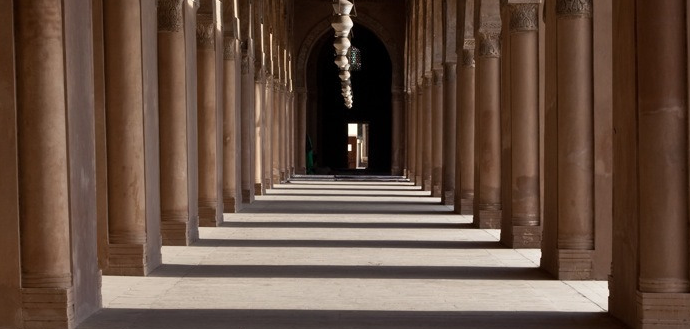
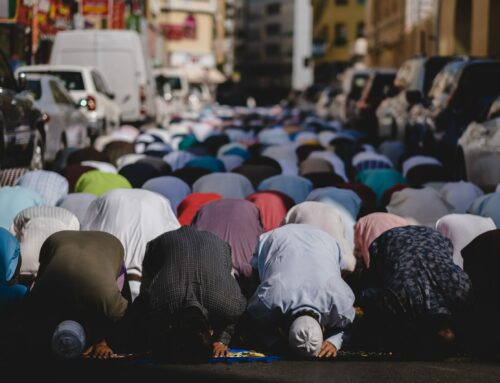
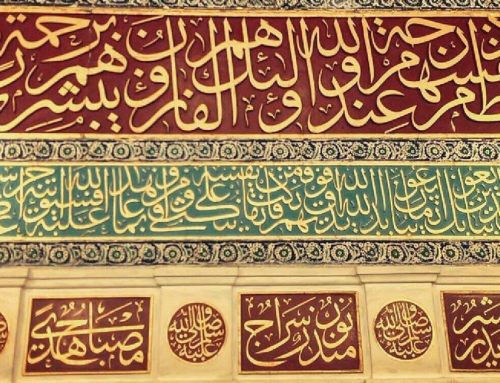

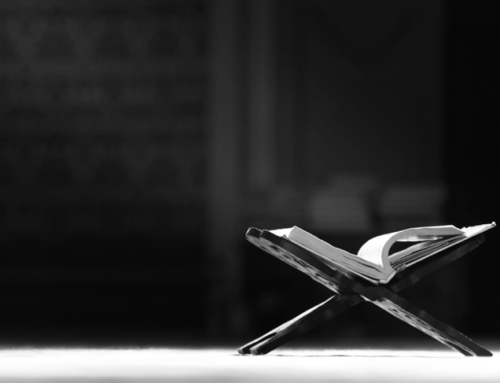
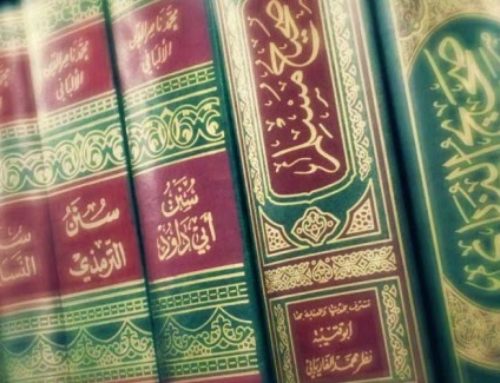
Jazakumullahu Khairan!
Such great advice, but I feel so overwhelmed due to my weaknesses!
May Allah (SWT) grant us the tawfeeq to gradually & consistently apply these advices till they become instilled in us.
Jazakallahu Khairan for this great advice. Inshallah Allah will give us the taufiqe to implement these advices into our lives.
I have one question. What is mean by cursory concentration (Advice #47)?